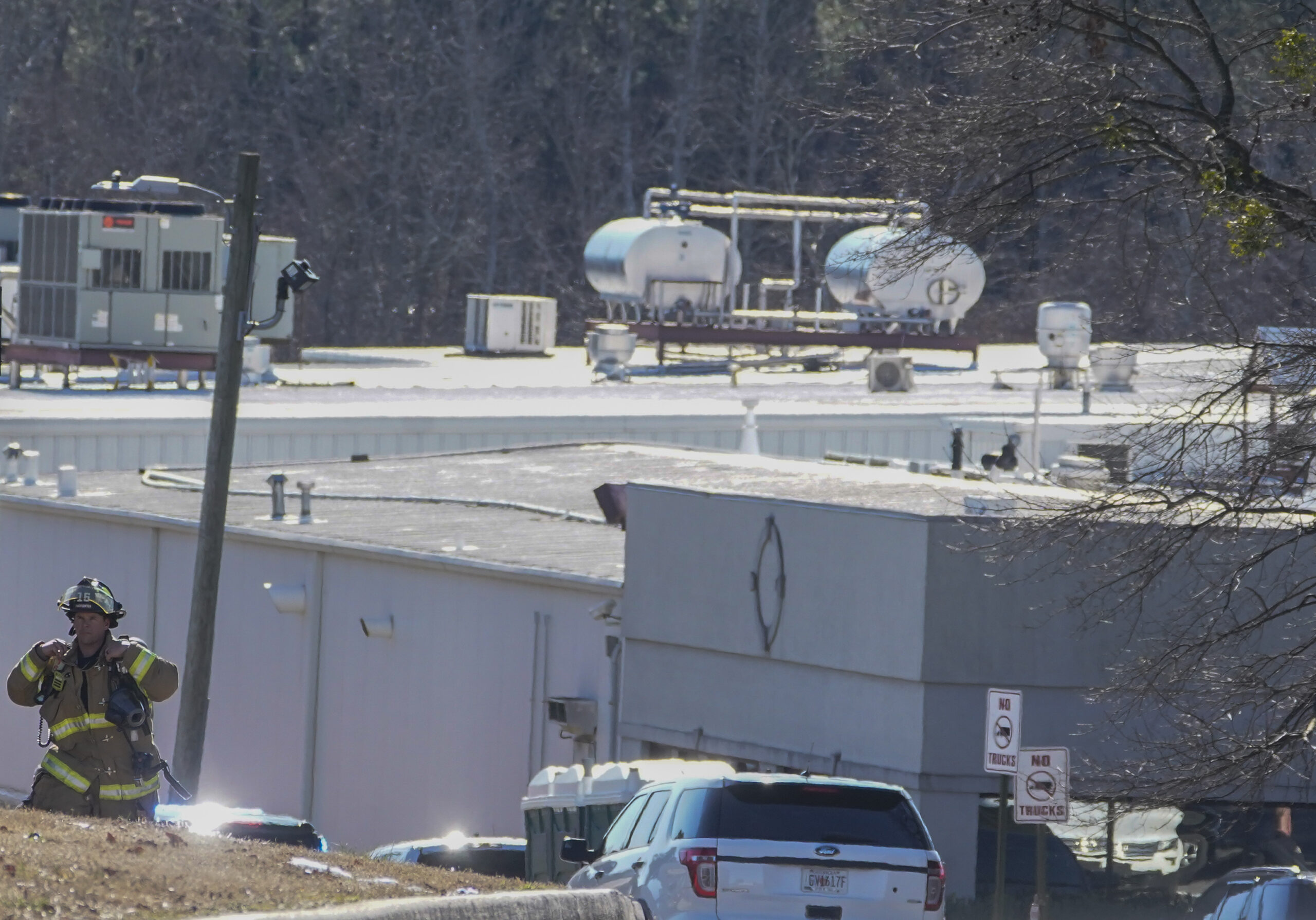Immigrant rights groups in Georgia are calling for stronger worker protections after a nitrogen leak at a poultry plant in North Georgia killed six people and injured about a dozen others.
The plant has had several workplace violations over the past several years, according to records from the Occupational Safety and Health Administration. The latest includes two amputations in 2017.
“At the same facility, there was a lack of goggles,” says Shelly Anand, executive director of Sur Legal Collaborative. The organization advocates for immigrant workers’ rights in Georgia.
Maria del Rosario Palacios heads the advocacy organization GA Familias Unidas. She worked in meat-processing plants right after high school. She says there’s intimidation around reporting violations at these facilities and recalls a time she slipped in a plant.
“When I wanted to report it, I was made fun of by HR and by the plant manager who reminded me that I’m young and I’ll be fine and to walk it off,” says Palacios.
The nitrogen leak happened at a Foundation Food Group plant, formerly called Prime Pak Foods. But Palacios says workplace violations aren’t specific to just this plant.
“Unfortunately, that is the norm,” she says. “So we’re working with a really low bar of safety protocols and protections for our workers.”
Gainesville is known as the “poultry capital of the world” because of the number of processing plants there. A large number of immigrants work in these facilities. About 40% of Gainesville is Latino.
Palacios says poultry plants employ a high number of undocumented workers. She says workers affected by the leak fear being deported if they go to the hospital. Because of this, she says, they may not be getting medical care for injuries.
“Unfortunately, the biggest concern for folks is, ‘Should I really go to the hospital? What are they going to ask for? Do I need to talk to them about my status,’” she says.
Besides medical care, residents need help with funeral expenses, food for those out of work and legal services.
Vanessa Sarazua heads Hispanic Alliance Georgia, based in Gainesville. She says workers also need more bilingual counselors for mental health services.
“The trauma is so evident that they can’t sleep at night now,” Sarazua says. “The trauma is evident because they keep getting flashbacks of their co-workers of that day.”
Refrigerator systems at meat-processing plants often use liquid nitrogen. When leaked in the air, it can displace oxygen.
The U.S. Chemical Safety and Hazard Investigation Board’s investigation into the incident is ongoing.
During a press conference Saturday, Katherine Lemos, chairman and CEO of the board, said portions of the nitrogen-system equipment in question had recently been installed.
“We do know that major portions of the liquid-nitrogen system, both interior and exterior, were installed and commissioned in the last four to six weeks,” said Lemos.
The board says prior to the recent installation, ammonia-based freezing equipment was used.










